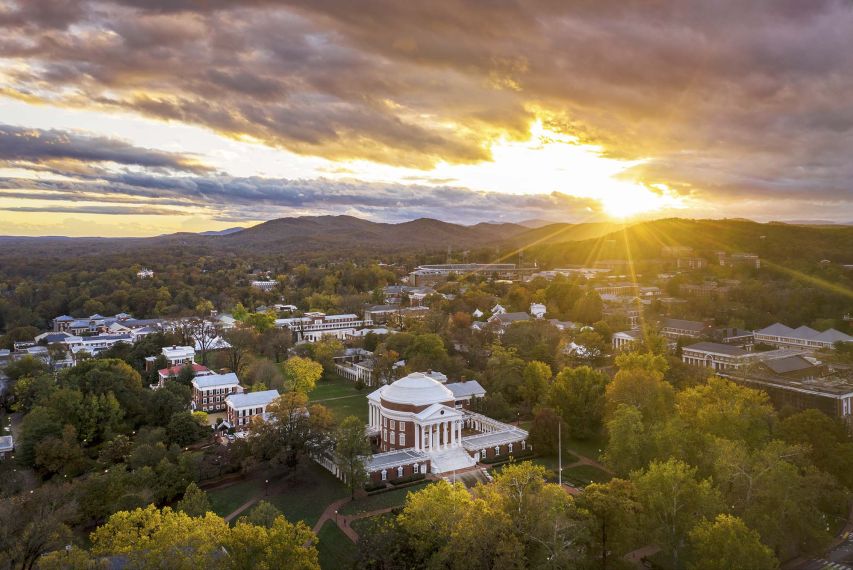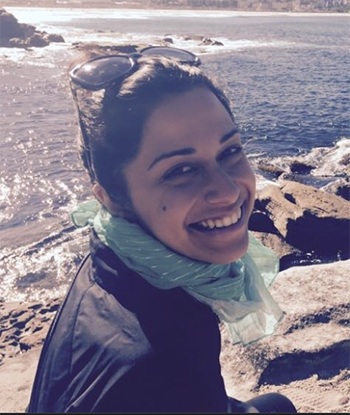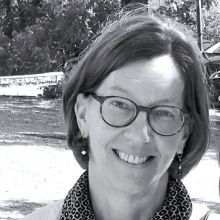Global Affairs asked two professors who have hosted Global Mentors in the inaugural year about their experience working with a mentor and their advice for faculty interested in participating in Global Mentors Program.
Helena Zeweri
Assistant Professor, Global Studies
Course: Migrant Women’s Political Activism: Global Perspectives
How did you choose your global mentor/s? How did you structure the class for the global mentor to interact?
Zeweri: The choice to have Gazelle Samizay and Seelai Karzai, two Afghan American filmmakers and poets serve as global mentors for ‘Migrant Women’s Political Activism’ course was borne out of our ongoing collaborations.
We all are part of the Afghan American Artists and Writers Association, a collective of artists and writers trying to amplify Afghan women migrants’ lived experiences. For me, it was important for students to see how activism, art, and poetry can go and hand in hand and the revolutionary potential that lies within this intersection.
For the class, Gazelle and Seelai served as co-teachers with me. For example, Gazelle presented on her films which explore questions of domesticity, gender, and hyphenated identity for a unit on economies of domesticity. Seelai co-taught a lecture on the intersection of race, disability, and religion in the context of Muslim women’s experiences in Canada. The mentors were present throughout the course, I tried to make sure they were collaborators rather than one-time presenters.
What were some of the ways the global mentor interacted with the students?
Zeweri: Gazelle and Seelai advised students on how to channel their research on migrant women led social movements creatively using multimedia and poetry. For their final projects, students were asked to analyze a social movement that has been led by migrant women and center the main themes through creative expression. These projects were included in a running digital archive called beyondrefuge.net.
They were instrumental in helping students shape their ideas through short films, digital maps, poems, creative writing, and visual collages that allow us to appreciate the many threads of women’s movement. Gazelle and Seelai also expressed that they learned a great deal from the students' framings of their experiences of identity.
What was the feedback from the students? Would you encourage other faculty to think about it?
Zeweri: I received several positive notes from the students after the course. Here are a couple of them.
“I think it's one thing to read about these topics/migrant women's activism as a whole, but to watch short videos and engage in conversations/presentations greatly enhanced my understanding. I think both mentors did a wonderful job engaging the class in conversations about their work as well as the week’s topic!”
“The global mentors shaped my understanding by humanizing the work around women's activism and helped show me that there are so many individuals who are working hard to fight for justice in these movements.”
I would definitely encourage faculty to apply to GMP especially if they feel like they can curate an experience where visitors can engage in a collective and collaborative relationship with students, and the process can be of mutual learning and engagement.
Karen Simroth James
Associate Professor, Language Program Director; Department of French
Course: French for Global Development
How did you choose your global mentor? How did you structure the class for the global mentor to interact?
James: Even before the announcement about the Global Mentors Program, I’d been talking with my colleague, Janet Horne, about the new course on French for Global Development and possible guest speakers for the class, professionals with ties to our department who use French in their development and humanitarian aid work.
She introduced me to Abiol Lual Deng, an American and South Sudanese international professional with over thirteen years of experience in humanitarian affairs and operations, government relations, and project administration on three continents. Abiol is a 2005 UVA alum, currently based in Dakar, who earned a Master’s in Conflict Studies from the Sorbonne and has worked in development and humanitarian roles for many years in francophone regions of Sub-Saharan Africa, which was to be the geographical focus for the new class in spring 2021.
Abiol seemed like a perfect fit for the Global Mentor role, and she was indeed delighted to join us. As a UVA French alumna, Abiol was eager to give back to the department and the university and to forge a mentor relationship with our students, bringing her experiences and professional network to enrich their education and exploration of careers related to development and humanitarian initiatives in francophone regions of Africa and elsewhere.
What were some of the ways the global mentor interacted with the students?
James: Through several Zoom conversations, Abiol and I mapped out a plan for a month-long unit on humanitarian issues and practices in the Sahel through the lens of her professional experiences. She helped identify relevant written documents and videos in French around which to build speaking and writing assignments grounded in authentic professional contexts. Abiol was able to join us from Dakar and lead class discussions for the entire unit in March. For several topics she invited contacts from relevant organizations to join us to discuss their work. She also connected students in small groups with development and humanitarian affairs experts who agreed to be interviewed as part of the students’ final projects. She offered advice to the students in that process and joined the class later in the semester to give feedback on their presentations.
As an alum, Abiol was very motivated to connect with and guide our students, which they appreciated. She was able to help them see the importance of developing skills for working in a cross-cultural and multilingual environment and for developing the capacity to explain, persuade, network, and negotiate in French within the context of sustainable development and humanitarian activities.
Her participation brought an authenticity and immediacy that was extremely valuable for the course goals but had an even more profound impact during the pandemic. Our sessions in Zoom with Abiol and the other French-speaking professionals provided a meaningful way to connect with current challenges and solutions in west and central Africa, even while we were isolated at home or in dorm rooms.
What was the feedback you received from the students? Would you encourage other faculty to think about it?
James: In course evaluations and in their final reflective essays, students identified their opportunity to engage with and learn from our Global Mentor and the other professionals as the most important aspect of the course. They also liked using French in group projects modeled on real-world tasks for interns and entry-level professionals in development and humanitarian aid organizations. Many students expressed deep appreciation for the individual advice Abiol gave them about career paths related to their particular interests. They appreciated the connections she made for them with professionals and organizations working in areas of development and humanitarian affairs directly relevant to their fields of study in addition to French, including global health, security and justice, urban development, data science, and education.
I would absolutely encourage other faculty to think about involving a Global Mentor in their class, and to reach out to colleagues within and beyond their department for ideas. The program offers important opportunities for our students to interact and connect with experts from around the world and contributes in unique ways to the goal of educating global citizens. It probably goes without saying that it is likewise a tremendously rewarding learning experience for the faculty member.






